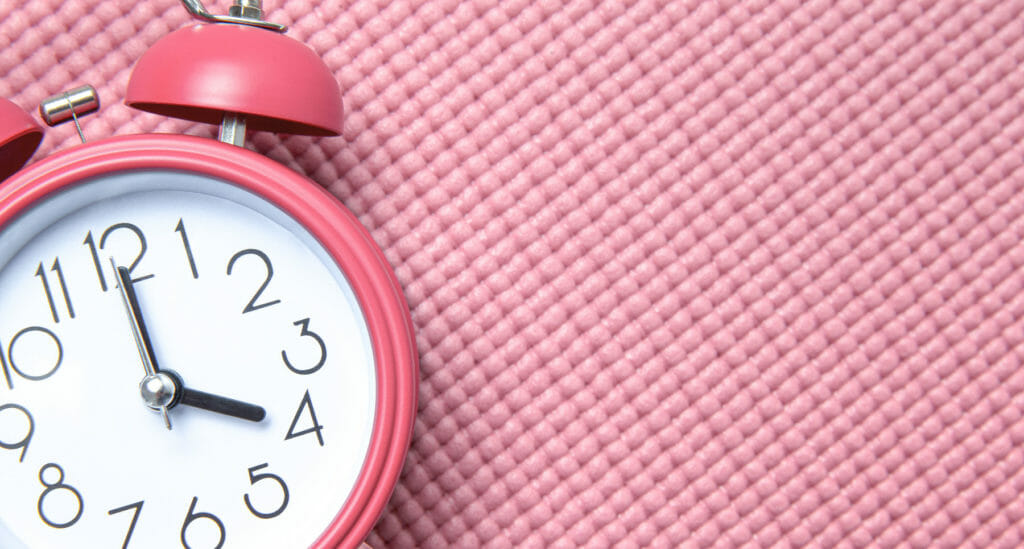
Are you having trouble sleeping at night? Or do you wake up feeling tired, or find yourself dozing off during the day?
Understanding sleep science and how your sleep cycle works can help you make lifestyle changes so you can sleep better and feel more rested throughout the day. Let’s take a closer look at the different sleep cycles, why they’re all important, and how to make sure you’re spending enough time in each one.
How Long Is a Sleep Cycle?
Sleep is simply a change in your brain waves that facilitates brain cleaning, body restoration, energy revitalisation, and memory consolidation.
As you sleep, you move through a series of different stages, which are categorized into rapid eye movement (REM) sleep and non-REM (NREM) sleep. NREM sleep is divided into three sub-stages: 1, 2, and 3/4 (stages 3 and 4 are combined into one stage).
Moving through these stages once is called a sleep cycle. An average, healthy sleep cycle lasts for 90 minutes. The longer you sleep, the more sleep cycles you’ll have. On average, people get three to six sleep cycles per night.
What Happens During Each Stage of a Sleep Cycle?
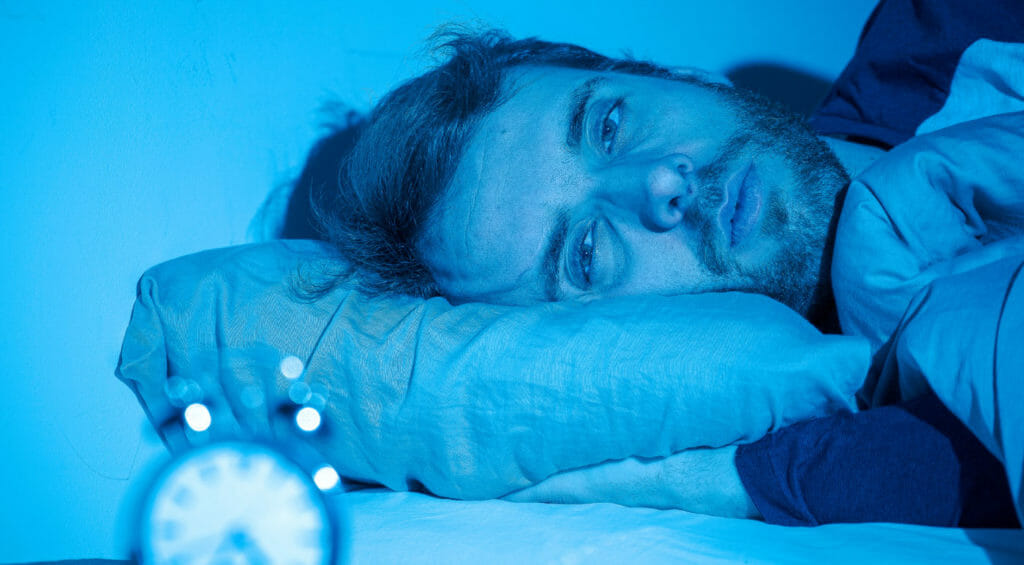
Each stage of a sleep cycle is quite different, and they’re all important to healthy brain and body function. Let’s take a closer look at each one.
Stage 1 Sleep
Stage 1 is the lightest sleep stage, and it’s a transition from wakefulness to sleep. It is characterized by slow eye movements.
Stage 1 typically accounts for 5% to 10% of total sleep.
Stage 2 Sleep
During this stage, your eye movement stops, your temperature decreases, and your breathing and heart rate slow down. These changes allow the body to initiate sleep.
Stage 3 and 4 Sleep (Deep Sleep)
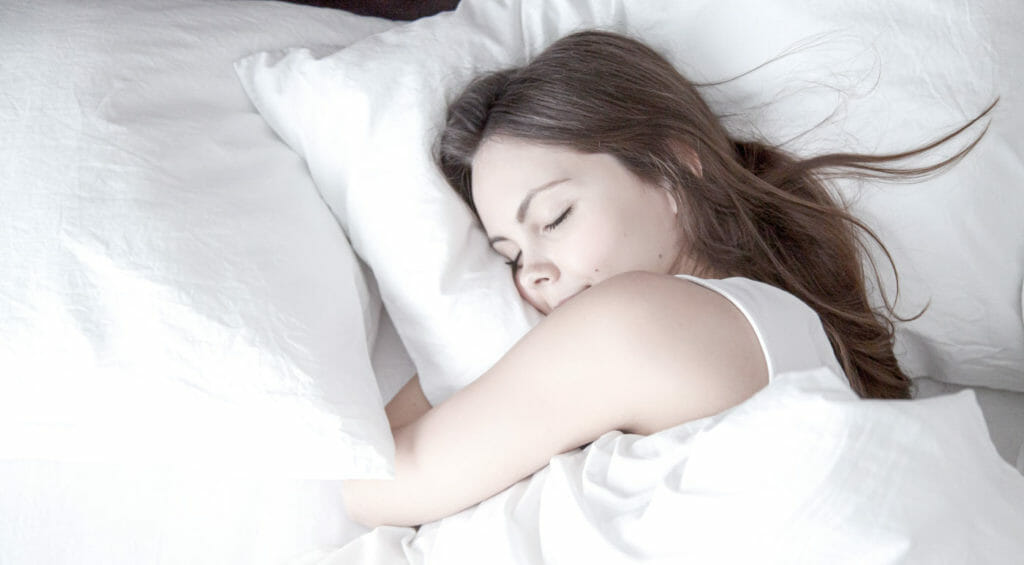
These stages are jointly referred to as slow-wave sleep, also called deep sleep. The heart rate, body temperature, and breathing rate decrease even further. Next, there’s a drop in blood pressure to allow deeper body systems such as the heart, gallbladder, liver, and brain to relax and rejuvenate.
During stages 3 and 4, the human growth hormone is released in large supply to help repair tissues damaged by day-to-day activities and build new muscles. This sleep stage is also important to maintain a healthy metabolism and assist with weight loss; one study showed that not sleeping enough undermined the participants’ efforts to lose weight.
Stage 5 or REM Sleep
During stage 5 sleep, the brain is active, breathing is irregular and fast, and blood pressure and heart rate are both increased. The eyes are also moving quickly, which is why this stage is also known as rapid eye movement (REM) sleep.
During REM sleep, the brain activates a cleaning system called the glymphatic system. The brain cells actually shrink to allow cerebrospinal fluid to move 10 times faster between the cells than it can during the day. This movement helps clear out toxins such as beta amyloid protein, which is known to build up in cases of Alzheimer’s disease. A 2018 study found that just one night of sleep deprivation left participants with an increased accumulation of beta amyloid protein.
REM sleep also plays a role in emotional wellbeing, with people who were prevented from getting enough REM sleep experiencing a decreased ability to deal with stress, anxiety, and distractions.
Finally, REM sleep is important in the brain’s ability to retain new memories. This study explains how the hippocampus consolidates new information into long-term memories, and how disrupted REM sleep can lead to problems with that process.
The length of a full sleep cycle is typically 90 minutes, which means people enter REM sleep about every 1.5 hours. On average, people get three to six sleep cycles per night, so the longer you sleep, the more REM sleep you get to experience.
What Affects Your Sleep Cycle?
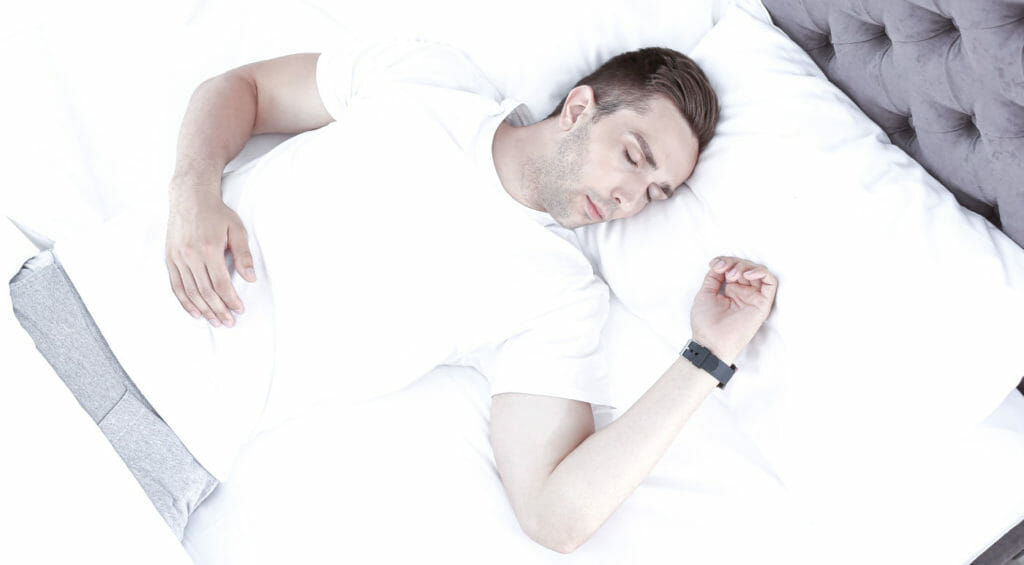
Many factors affect how long your sleep cycle is and how you’re able to fall asleep.
Your circadian rhythm is an approximately 24-hour cycle that affects your energy levels — it’s basically an internal 24-hour clock. It’s controlled by tiny structure in the brain called the suprachiasmatic nucleus in the hypothalamus. Your circadian rhythm is affected by what you eat, the amount of light you’re exposed to, the state of your gut bacteria, your hormone levels, and your exercise habits.
The length of your sleep cycle depends on the body’s ability to initiate and maintain sleep stages. Let’s take a look at some of the factors that influence how long your sleep cycle is and how you sleep.
Food
Foods that help you sleep improve your sleep quality by changing your internal clock. A growing body of research shows that the type and amount of food you consume, as well as the time you eat it, influence sleep-regulating neurotransmitters such as tryptophan, serotonin, GABA, and melatonin.
Ideally, you want to eat your biggest meal around lunchtime or in the middle of the afternoon. Eating a big dinner can keep you up at night. Another option is to have a small, high-carb bedtime snack to help you fall asleep.
Light Exposure
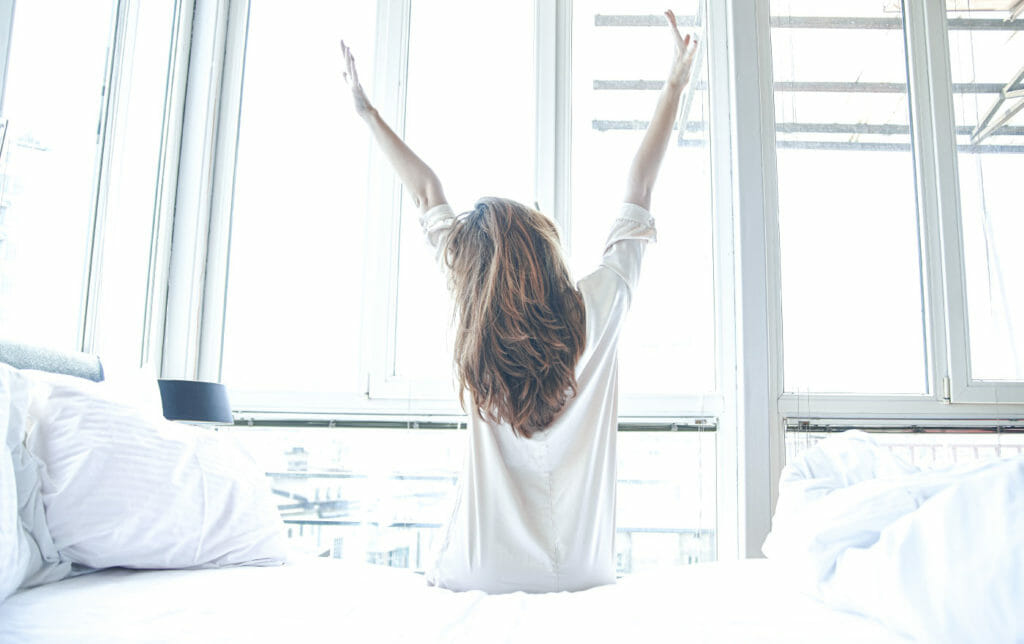
Bright light signals the brain to wake up, whereas darkness tells the brain to initiate your sleep cycle. Keeping lights dim before bed will help your body prepare to fall asleep, and making sure your room is dark will help you fall asleep.
Not all light is equal: the blue light from cell phones, tablets, and TVs blocks the production of melatonin, a hormone that helps initiate sleep. It’s best to avoid looking at this type of light right before bed.
Shift Work
At night, the body’s blood pressure, heart rate, and temperature drop down as it calms and prepares itself to initiate sleep. However, working night shifts prevents the body from this type of relaxation, and it’s harder to make these shifts when you’re trying to sleep during the day.
Working night shifts constantly over a long period of time increases the risk for the following:
- Certain cancers
- Metabolic problems, such as obesity and diabetes
- Heart disease
- Ulcers and other GI problems
- Decline in sex drive
- Accidents due to potential drowsy driving
- Poor performance and irrational behaviour (irritability)
It’s not always possible to avoid shift work, but it’s something to consider when thinking about your work.
Pain, Anxiety, and Medications
Pain, anxiety, and certain medications keep the body’s stress system activated, therefore preventing relaxation and the initiation of sleep. Addressing the underlying causes of pain and anxiety can lead to better sleep. For example, perhaps you need to switch to a mattress designed for hip pain or a pillow that helps with neck pain.
Understand the side effects of any medications you are taking. If you’re having trouble falling or staying asleep, check with your doctor to see what changes are possible.
Caffeine
Caffeine is a well-known disruptor of sleep — after all, that’s often why we drink it! Caffeine negatively affects both the quality and the duration of your sleep. The effects last until all the caffeine you’ve consumed is metabolized out of your body, which can take five to eight hours depending on your age, genetics, and health conditions.
Smoking
Cigarettes contain nicotine, a stimulant which makes smokers take longer to fall asleep, wake up more frequently, and have less deep sleep. If you want to sleep better and enjoy longer sleep cycles (among many other health benefits), you should consider quitting smoking.
If you’ve tried to quit smoking in the past, keep trying. It’s common for smokers to try multiple times before succeeding.
Alcohol
Alcohol initially sedates you and can seem like it’s helping you sleep. But alcohol’s metabolites stimulate you and disrupt your REM sleep, which is important for mental focus, concentration, learning, and memory.
If you’re having trouble sleeping, consider having a drink earlier in the evening instead of closer to bedtime, or perhaps abstaining until your sleep improves.
Additional Resources on Common Sleep Questions
How Many Hours of Sleep Should You Get?
How Much REM Sleep Do You Need?
Hypnosis for the Struggling Sleeper